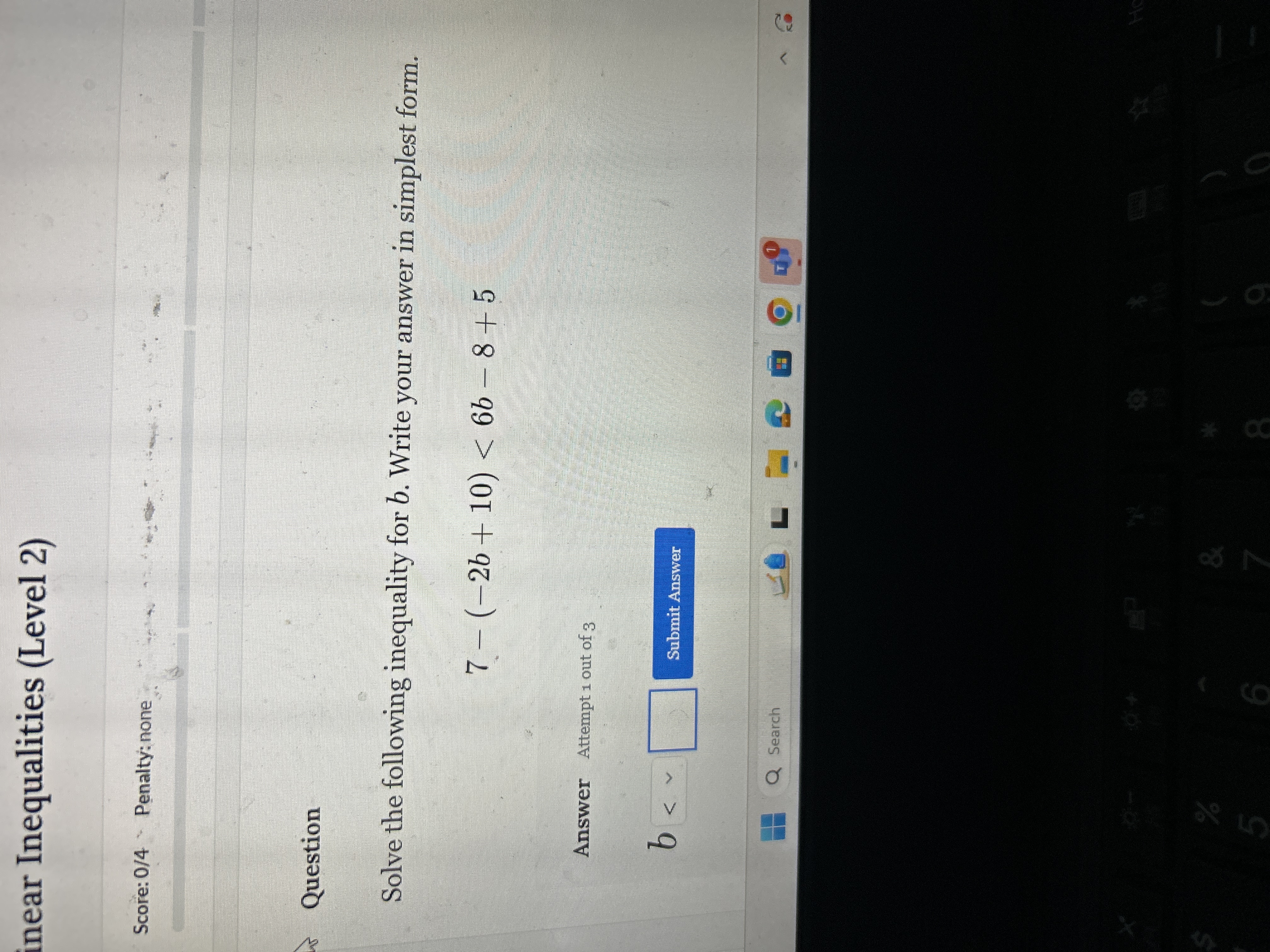Solve the following inequality for b. Write your answer in simplest form. 7 - (-2b + 10) < 6b - 8 + 5

Understand the Problem
The question is asking to solve the given inequality for the variable b and express the answer in its simplest form.
Answer
The solution is \( b > 0 \).
Answer for screen readers
The solution to the inequality is ( b > 0 ).
Steps to Solve
-
Distribute and simplify the left side
Start with the given inequality:
$$ 7 - (-2b + 10) < 6b - 8 + 5 $$
First, distribute the negative sign:
$$ 7 + 2b - 10 < 6b - 8 + 5 $$
Combine like terms on the left side:
$$ (7 - 10) + 2b < 6b - 8 + 5 $$
This simplifies to:
$$ -3 + 2b < 6b - 3 $$
-
Isolate variable b on one side
To isolate $b$, first, move $2b$ from the left side to the right side by subtracting $2b$:
$$ -3 < 6b - 2b - 3 $$
This simplifies to:
$$ -3 < 4b - 3 $$
-
Add 3 to both sides
Now add 3 to both sides to eliminate the constant on the left:
$$ -3 + 3 < 4b - 3 + 3 $$
This results in:
$$ 0 < 4b $$
-
Divide by 4
Finally, divide both sides by 4 to solve for $b$:
$$ 0 < b $$
Or, rewriting it gives:
$$ b > 0 $$
The solution to the inequality is ( b > 0 ).
More Information
This means that any value of ( b ) greater than 0 satisfies the inequality. This is a linear inequality, indicating a range of acceptable values for ( b ).
Tips
- Neglecting to distribute correctly: Always ensure to apply the negative sign to each term within parentheses.
- Combining like terms incorrectly: Take care when adding or subtracting constants and coefficients of variables.
- Misinterpreting inequalities: Remember that dividing by a negative number reverses the inequality, but here we only divided by a positive number.
AI-generated content may contain errors. Please verify critical information